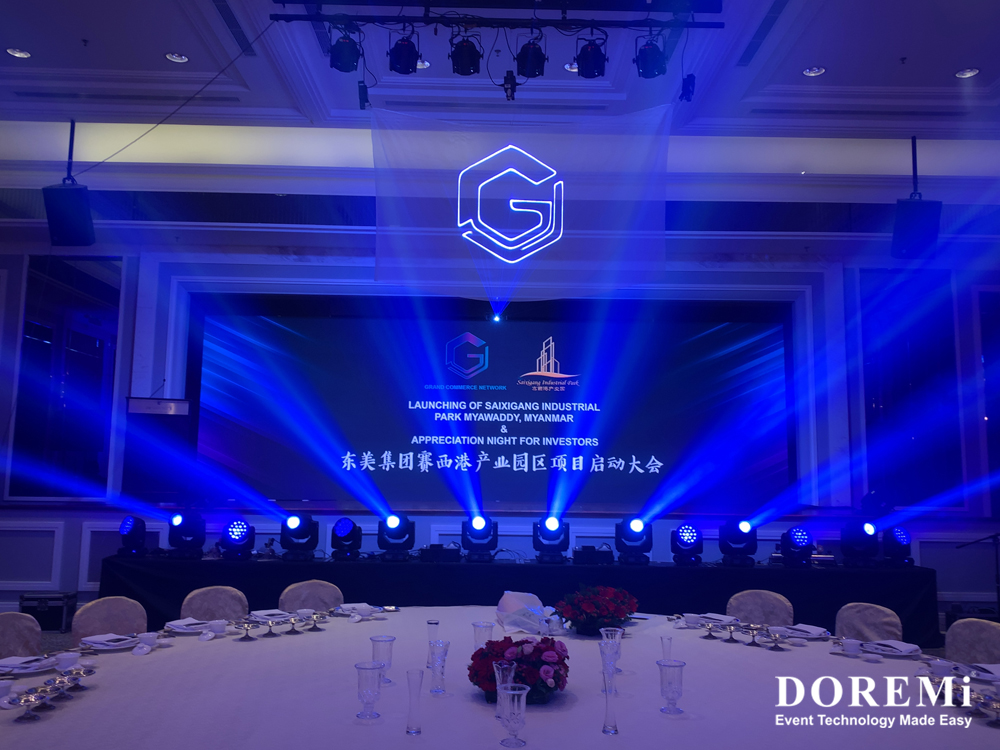YANGON—The US has blacklisted a major Chinese criminal figure and Communist Party of China (CCP) member who is also a key investor in a so-called “industrial zone” and gambling hub in Karen State’s Myawaddy, near the Thai border.
On Wednesday, the US Department of the Treasury said it had added Wan Kuok Koi, commonly known as “Broken Tooth”, to its sanctioned list of “corrupt actors”. Wan is known as the leader of the 14K Triad, a group notorious for engaging in drug trafficking, illegal gambling, racketeering, human trafficking and a range of other criminal activities in Southeast Asia and the US.
The US also added three entities owned or controlled by Wan to the list: the World Hongmen History and Culture Association, based in Cambodia; Dongmei Group, based in Hong Kong; and the Palau China Hung-Mun Cultural Association, based in the Pacific island nation of Palau.
In March, Wan held a launch ceremony in Kuala Lumpur, Malaysia for the “Saixigang Industrial Zone” project, proposed as a world-class, high-end leisure tourism project in Myawaddy to be implemented by the Dongmei Group Company. The project is similar to the controversial Shwekoko gambling project, envisioned as a “smart city” including tourism, leisure and other entertainment activities in Myawaddy.
Wan branded the project as a part of Chinese President Xi Jinping’s ambitious Belt and Road Initiative (BRI) during the launch event.
According to the United States Institute of Peace (USIP), the Saixigang project is designed to provide a new home for Chinese businesses being forced out of Cambodia due to a joint crackdown by Chinese and Cambodian law enforcement agencies. It said that the project’s name states the objectives of its proponents: In Chinese, “Saixigang” translates roughly as “Surpass Sihanoukville”. The Cambodian coastal city of Sihanoukville has seen an influx of Chinese investment in recent years.

Wan was arrested in 1999 over his involvement in 14 murders in Macau. However, the 14K mafia remains active, with an estimated 20,000 members engaged in illegal activities spanning the globe. USIP said it has a deep presence in the US in the heroin trade, illegal gambling, extortion and human trafficking.
He was released from prison in 2012 and became the head of Dongmei Group Company in partnership with a Malaysian businessperson. The company entered into real estate development in Cambodia. Later, it launched a cryptocurrency named the “triad coin”.
The US Treasury Department said Wan’s World Hongmen History and Culture Association was established in 2018 in Cambodia. It said that Hongmen (or Hung Mun) is a global Chinese fraternal organization established in the mid-1600s and is synonymous with “Triad” in Hong Kong and Macau.
It said the association is involved in establishing a powerful business network involved in the development and launching of cryptocurrencies, real estate and most recently a security company specializing in protecting BRI investments.
The department added that Chinese enterprises behind the BRI projects have several things in common, particularly the fact their leadership has links to criminal networks or actors involved in illicit activities in other parts of Southeast Asia, as well as China. It said they have pre-existing organizations engaged in casinos and cryptocurrencies and advertise themselves online as being associated with the BRI and flaunt connections with key Chinese government agencies. All of them have established associations that actively seek to assist Chinese nationals, the Treasury Department said.
The developer of the controversial Shwekoko project in Myawaddy, Yatai Group, also promotes its project as part of the BRI. However, the Chinese Embassy in Myanmar says it is a third-country investment and has nothing to do with the BRI.
You may also like these stories:
Mitsubishi to Supply Myanmar With Train Cars for Two Railway Line Upgrades
Army Officer’s Daughter Jailed for Claiming Pressure to Vote for Military Proxy Party
Series of Abductions by Ethnic Armed Groups Rattle Myanmar Ruby Town

















